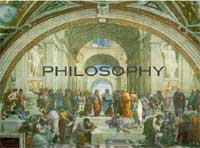Subject Area: Philosophy
Provides essential knowledge and reasoning skills in moral philosophy. Examines a selection of writings from key figures in the tradition of moral philosophy, including but not limited to Hume, Kant and Mill, as well as selected twentieth century moral philosophers. Introduction to some of the central topics, concepts and methods of reasoning within contemporary moral philosophy, including the difference between consequentialist and deontological approaches to ethics, moral realism versus moral relativism, and the nature of moral reasoning. Examines the role of concepts such as autonomy, freedom and responsibility in moral thinking and the application of moral principles to particular issues.
Note: No prior knowledge of philosophy is assumed.

